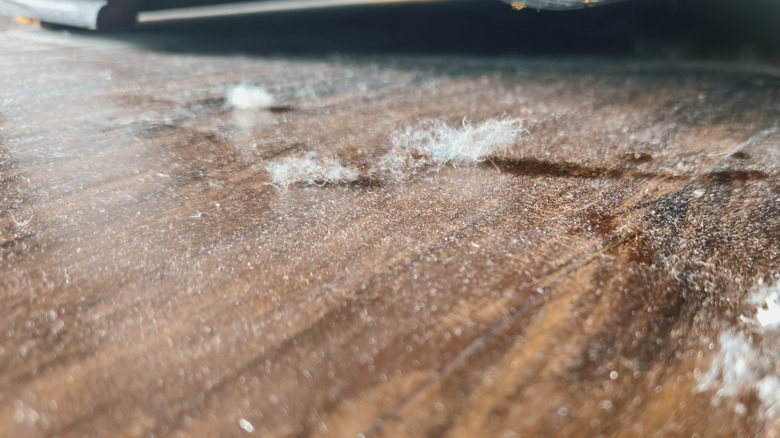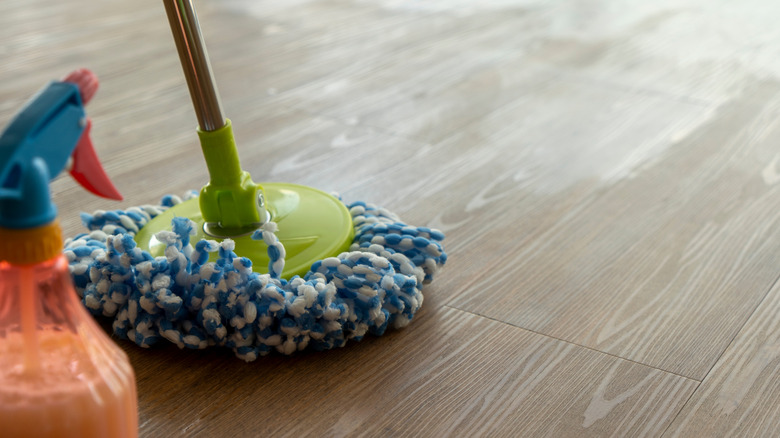The Kitchen Ingredient That'll Do Wonders For Your Dirty Vinyl Floors
Many homeowners may choose vinyl floors for their durability, water-resistance, and affordability. But knowing how to clean them properly can be confusing. Regularly cleaning them helps extend their lifespan, reduces the chance of scratching the surface, and keeps them looking great. It also helps reduce allergens, such as dust, pollen, and pet dander that may irritate your respiratory system. When you're faced with dirty vinyl floors, mopping with a simple kitchen ingredient can do wonders to get them sparkling once again. Distilled white vinegar is a proven way to clean vinyl floors so they look new again.
Easy to use, vinegar can cut through most stubborn messes as an affordable alternative to pricey specialty cleaners or those with harsh chemicals. Plus, compared to these store-bought cleaners, vinegar delivers a clean floor without leaving behind streaks or cloudy film. Mopping with vinegar lets you polish your floors and restore their shine with ease without the risk of damaging the floor's finish. Many vinyl floor manufacturers often recommend homeowners use vinegar and water when cleaning because it easily breaks down grime. Its acetic acid breaks down and loosens any dirt from the surface, making it easy for you to wipe away. Perhaps most important for some is that vinegar is non-toxic and thus safe for use around children and pets if you follow the right steps. Avoid the mistakes everyone makes when cleaning their vinyl plank floors and get them shiny with vinegar.
Using white vinegar to clean dirty vinyl floors
A bottle of distilled white vinegar is the start to one of the easiest ways to clean vinyl floors. First, prepare the floor by sweeping or vacuuming with a beater brush to remove any surface debris, then you're ready to mop. Mix 1 gallon of warm water with 1 cup of vinegar. After dipping the mop, wring it so it's not sopping wet but only damp. Carefully go over the floor with your mop, spending a little time if needed on stubborn spots. It's best to use a microfiber mop so as to not scratch the floor. Follow up your cleaning by going over the floor with a mop slightly damp with clean water to remove any remaining liquid.
While vinyl flooring is water-resistant, moisture can still damage your floor. When any water seeps through the gaps between the floor planks, it can cause mold or mildew growth once trapped. Its presence can also compromise the vinyl's integrity and appearance resulting in bubbling, peeling, warping, and expanding. Before mopping the entire floor, test your vinegar solution in a hidden space, perhaps underneath a piece of furniture. You should also double check any manufacturer manual guidelines to make sure that vinegar is recommended for use on your specific vinyl floor brand.

